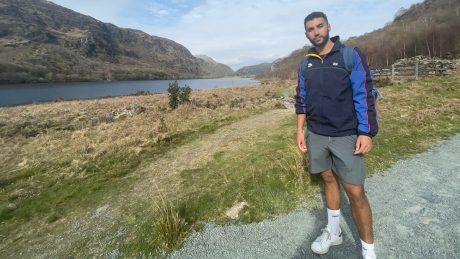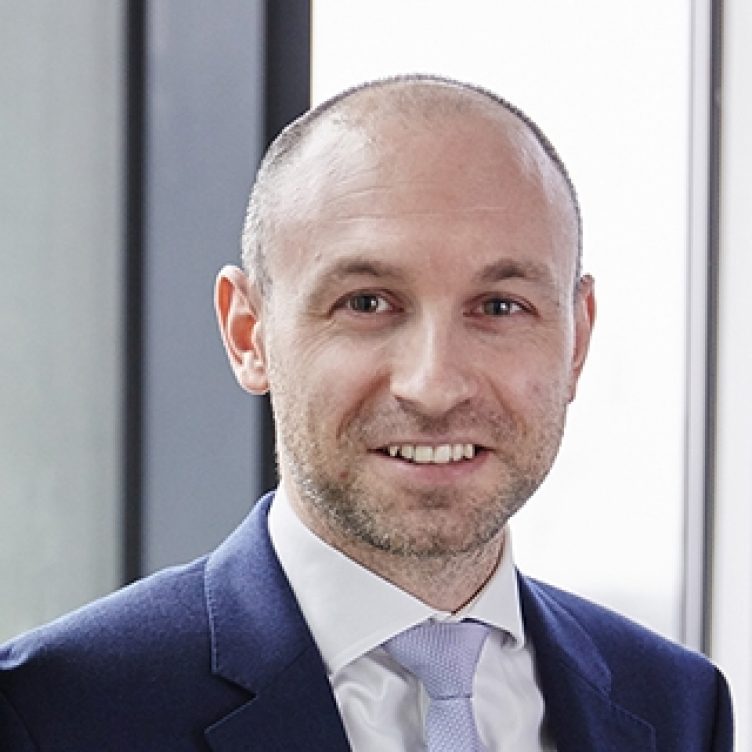While out one evening on holiday in Cyprus, Alex Ford was involved in a serious road traffic incident and sustained a life-changing brain injury. Chris Deacon helped Alex secure a settlement with the insurers of both drivers involved in the incident making a comprehensive rehabilitation possible.
In the summer of 2015, Alex Ford had just finished his A-levels and was enjoying his first summer holiday with his school friends before starting university in the autumn. The group travelled to Cyprus to celebrate the end of their exams. Alex had secured a place to study chemical engineering at Newcastle University. He had achieved top results at A-level, and he and his family saw a bright future ahead of him.
The incident
On 29 July 2015, Alex, then 18, and his friends were returning to their villa after seeing a concert in Ayia Napa. Alex was travelling on the back of a hired moped driven by one of his friends. Suddenly, a local Cypriot driver approaching from behind collided with the moped at speed, causing Alex and his friend to be ejected and thrown into the road ahead.
Alex and his friend were taken to a private hospital in Ayia Napa, where Alex was diagnosed with a traumatic brain injury, including damage to his frontal lobes. Both Alex and his friend were taken to intensive care. Meanwhile, Alex’s family were informed of the accident, and his distraught mum flew to Cyprus straight away. When Alex’s mum arrived at his bedside, she realised that he urgently needed specialist medical support. She liaised with Alex’s travel insurer to have him airlifted to a hospital in Athens where a specialist neurosurgery team could intervene and monitor his progress.
The doctors allowed Alex to fly home on 18 August 2015. On his return, he required constant monitoring by his family and Leeds Royal Infirmary took over his medical care through its specialist outpatient head injury team.
Legal case
Initially, Alex instructed a local solicitor, who subsequently referred the case to Stewarts’ specialist International Injury department in early 2017. The family was put in touch with Chris Deacon, a partner who specialises in representing clients following serious international accidents.
By the time Stewarts took over the case, Alex had started at Newcastle University and was struggling with ongoing cognitive deficits, including information processing, memory, fatigue and psychological challenges, including regulation of emotions.
The insurer of the Cypriot driver who collided with the moped Alex was riding on, Royal Crown Insurance, denied liability and made an early unacceptably low offer to try to compromise the case. Stewarts, therefore, promptly started proceedings in the High Court against the Cypriot insurer of the driver of the car.
Following issue and service of proceedings in July 2017, Royal Crown Insurance maintained its denial of liability and issued a Part 20 claim against the driver of the moped and the Cypriot insurer of the moped, Trust International. Part 20 of the English Civil Procedure Rules enables a party to seek a contribution or indemnity from another party. Royal Crown Insurance maintained that the accident was caused by the negligence of Alex’s friend because it is illegal to drive a moped on motorways in Cyprus.
Interestingly, under the Rome II Regulation, Alex’s claim against Royal Crown Insurance was subject to Cypriot law. However, the claim against the driver of the moped and Trust International was subject to English law as Alex’s friend was also an English national and was living in England at the time of the accident. This added a layer of complication to the assessment of damages since Alex’s entitlement had to be assessed under both Cypriot and English law.
Loss of earnings claim and settlement
In Alex’s case, a large part of the claim was ‘loss of earnings’, on the basis that Alex would not be able to continue on his path to becoming a chemical engineer that he had been so keen to pursue before his accident.
After studying one year of chemical engineering, it became clear to Alex that he was not able to process and retain the large amount of information the degree demanded. He switched to a degree in mathematics in the autumn of 2016. Alex found this easier to manage as the material was more familiar to him following his successful A-level studies. However, he still found it difficult to manage his university workload and maintain a normal student social life outside of studying. In May 2019, when Alex was in his final year of his mathematics degree, he made the difficult decision to leave university. He decided he would have a better chance of coping with his limitations outside the academic environment.
Chris brought in the expertise of Mr Andrew Nicoll, an employment consultant, to investigate Alex’s potential earnings and employment benefits had he not been injured, compared to his likely earnings post-accident in the work he would now pursue.
In order to address the assessment of Alex’s claim under Cypriot law, Chris instructed a Cypriot law expert, Mr George Georgiou. One of the complications under Cypriot law is that the Cypriot courts continue to adopt a broad assessment when awarding damages for future losses, whereas under English law a more precise assessment is undertaken using multipliers from the Ogden Tables. Chris argued that Alex’s claim should be assessed in a way that reflects the actual losses he would incur in England where he would continue to live and work in the future, and that the Ogden Table multipliers should apply in Alex’s case because they better reflect the circumstances of a claimant who will receive and invest his damages in England to meet his lifelong needs.
In February 2020, Royal Crown Insurance accepted an offer from Alex to settle liability. It made a long overdue interim payment to Alex in April 2020, and he was able to start arranging appropriate rehabilitation and focus on thinking about his future travel plans and career options. The liability of the second insurer, Trust International, remained unresolved as the case moved towards trial.
The High Court listed Alex’s case for trial over eight days in November 2020. Three weeks before trial, Chris negotiated a successful final settlement with both Royal Crown Insurance and Trust International.
Rehabilitation
Once Alex had left university in May 2019, he felt like he could finally work on improving his mental and physical health, which he had not been able to prioritise while studying. Initially, he stayed at a residential fitness boot camp where he followed a routine of exercise, therapy and healthy eating under the guidance of personal trainers and therapists. Alex felt this provided him with the tools to manage stress and anxiety, and he enjoyed himself a lot more than he had done at university. He felt like he had got the “real Alex” back for the first time since the accident in Cyprus.
In December 2019, with the confidence he had gained from boot camp, Alex travelled to Canada for a ski season where he worked in a restaurant. Alex enjoyed this experience. Although he still had to manage daily fatigue through the coping mechanisms he had developed, he managed to balance work and a busy social life. Unfortunately, the Covid-19 pandemic and subsequent national lockdowns forced him to return to the UK in March 2020.
Once back in the UK, Alex picked up temporary work and attended boot camp again before planning to return to Canada in autumn 2021.
Testimonial from Alex
“The settlement has enabled me to really think about what I want do in life without any pressure. Before, I felt like I had no idea, and I felt a lot of pressure to be doing as well as I was before my injury. Now that my case has settled, I have time and space to work that out.
“I know that I would like to help people in some form or capacity. I want to feel like I am helping people and adding to their lives in a meaningful way. I think I have always had a drive to help others, but I think that my experience of being injured and recovery has given me greater empathy.
“I can’t fault the level of service and professionalism that I had from Stewarts. Everything was made clear to me and explained in a way that wasn’t too complicated. I always felt like I was kept in the know about my case, and there was always somebody there to answer my questions on the progress of the case or what was coming next. Everybody I spoke to at Stewarts was just really friendly and warm and nice to deal with.”
Chris Deacon instructed Matthew Chapman QC as leading counsel. Alex described him as “really exemplary. He is very impressive.”
You can find further information regarding our expertise, experience and team on our International Injury pages.
If you require assistance from our team, please contact us.
Subscribe – In order to receive our news straight to your inbox, subscribe here. Our newsletters are sent no more than once a month.





